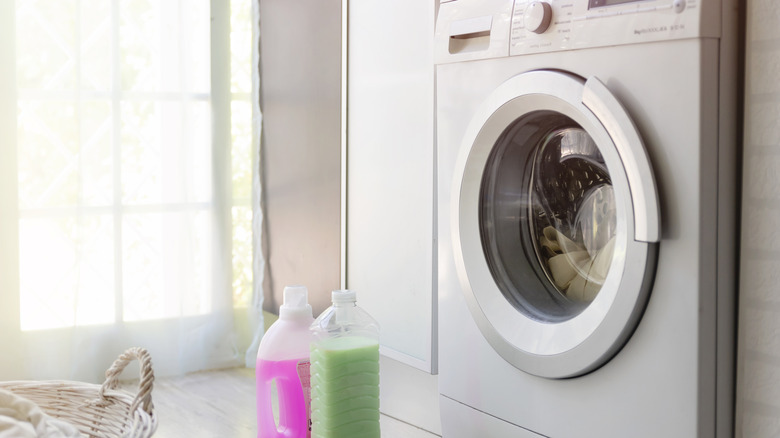Front Vs. Top-Loading Washing Machines- Which Is More Efficient For The Water Bill
Shopping for a new washing machine is never an easy task. Before making the purchase, those in the market must weigh the product's , size, features, energy ratings, and price points, as well as what is the most reliable washing machine brand. One of the more significant decisions buyers face is whether to go with a front-loading or a top-loading machine. Both varieties have their loyal fans, but when it comes to water usage — a detail that directly impacts your monthly utility bill – front-loading washing machines tend to come out on top.
That is not to say that top-loading washers don't have their perks. They are often less expensive to purchase, have faster cycle times, and are easier to load because you don't have to bend down. Plus, some newer, high-efficiency models are narrowing the water-saving gap. However, if your goal is to scale back on water usage and save money, purchasing a front-loading model is generally the way to go in the front-load vs. top-load washer debate.
Why a front-load washer is more water-efficient
Front-loading washing machines clean clothes by tumbling them through a small pool of water, rather than fully submerging them like the top-loading machines do. This tumbling action uses gravity and rotation to clean clothes and linens with far less water. As a result, you will save roughly 2,000 to 3,000 gallons of water a year with a front-loading machine as opposed to a top-loader, which fills the drum to soak clothes during its washing cycle. When you factor in just how often you use your washing machine, the savings you stand to gain with a front-loader over time become even more significant.
To stretch your dollar even further, make sure you're not underfilling your washing machine. Washing a half-empty drum wastes water no matter how efficient your machine is. When the washer is full (but not overstuffed), each drop of water does more work, cleaning more clothes per cycle and helping you get the most bang for your water buck.

